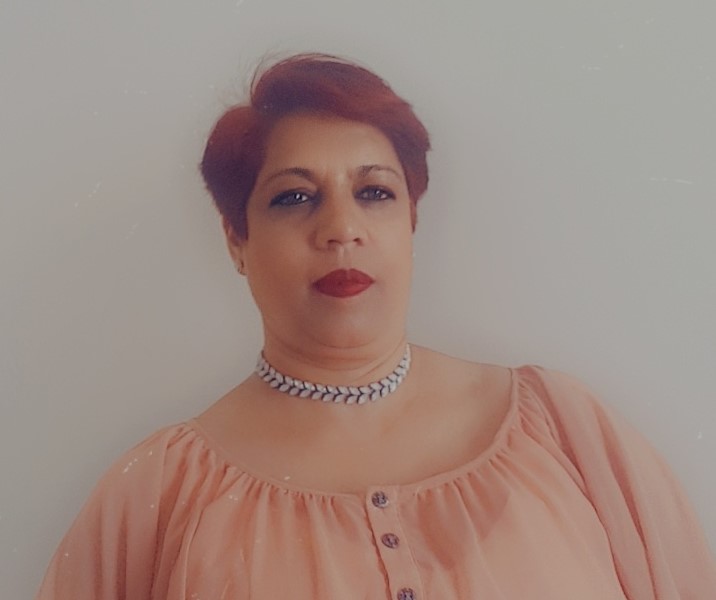News, Uncategorized
International Day for the Elimination of Violence against Women & Girls
Ms. Seema Naidoo

Women and Girls have the right to Freedom of Life, Free from violence and abuse
We are all entitled to human rights. These include the right to live free from violence, abuse, and discrimination; to enjoy the highest attainable standard of physical and mental health.
16 Days of Activism Against Gender-Based Violence is an international campaign to challenge violence against women and girls. The campaign runs from the 25 November, International day for the Eliminations of violence against women to the 10 December, initiated by the first Women’s Global Leadership Institute. But across the globe many women and girls still are faced with various forms of violence and abuse. Gender-Based violence are violent acts committed against women and girls and is often considered a form of hate crime.
The 16-day activism is to raise awareness of the fact that women and girls around the world are subject to rape, domestic violence and abuse and other forms of violence and abuse. One of the aims is to highlight that the scale and true nature of the issue is often hidden. We are encouraging all women and girls to break the silence and to report any form of violence.
Violence against women has an exceptionally long history, though the incidents and intensity of such violence have varied over time and even today vary between societies. Such violence is often seen as a mechanism for the subjugation of women, whether in society in general or in an interpersonal relationship.
Violence against women and girls is a global crisis, at least one out of every three women around the world has been beaten, coerced into sex, or otherwise abused in her lifetime with the abuser usually someone known to her.
Men should be heads of households rather than figures that are fearful at home and in society.
For many years women’s rights movements have fought hard to address this inequality, campaigning to change laws or taking to the streets to demand their rights are respected. And new movements have flourished in the digital age, such as the #MeToo campaign which highlights the prevalence of gender-based violence and sexual harassment.
Women should be able to live without fear of gender-based violence, including rape and other sexual violence, female genital mutilation, forced marriage, forced pregnancy, forced abortion, or forced sterilization, forced commercial sexual exploitation.
Violence against women and girls include but not limited:
Violence occurring in the family or domestic unit, including, physical and mental aggression, emotional and psychological abuse, rape and sexual abuse, incest, rape between spouses, regular or occasional partners and cohabitants, female genital and sexual mutilation and other traditional practices harmful to women, such as forced marriages;
Violence occurring within the general community, including, rape, sexual abuse, sexual harassment, and intimidation at work, in institutions or elsewhere trafficking in women for the purposes of sexual exploitation and economic exploitation.
Violation of the human rights of women in situations of armed conflict, in particular the taking of hostages, forced displacement, systematic rape, sexual slavery, forced pregnancy, and trafficking for the purposes of sexual exploitation and economic exploitation.
Several forms of violence are more prevalent in certain parts of the world, often in developing countries and are still practiced to this day, for example, dowry violence, bride burning, acid throwing, female genital mutilation. Abuse related to payment of Bride price such as trafficking, forced marriages.
Violence against women and girls are under-reported, often due to societal norms, taboos, stigma, and the sensitive nature of the subject. It is widely recognized that even today, a lack of reliable and continuous data is an obstacle to forming a clear picture of violence against women.
According to the UN, “there is no region of the world, no country and no culture in which women’s freedom from violence has been secured.
Regardless of many years of advocacy and involvement of many feminist activist organizations, the issue of violence against women still “remains one of the most pervasive forms of human rights violations worldwide”. The violence against women can occur in both public and private spheres of life and at any time of their life span.
Violence against women often keeps women from wholly contributing to social, economic, and political development of their communities. Many women are terrified by these threats of violence and this essentially influences their lives so that they are impeded to exercise their human rights; for instance, they fear contributing to the development of their communities socially, economically and politically. Apart from that, the causes that trigger violence against women an girls or gender-based violence can go beyond just the issue of gender and into the issues of age, class, culture, ethnicity, religion, sexual orientation and specific geographical area of their origins.
Importantly, other than the issue of social divisions, violence can also extend into the realm of health issues and become a direct concern of the public health sector.
Martin Luther King once said – “In the end what will matter the most are not the words of the enemies but the silence of our families and friends”
It is the responsibility of every community to act against Gender-Based violence. If you know someone is being abused, report the crime. You might save a life.

